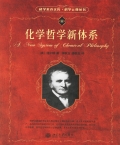题目内容
China’s education reforms aim to better develop students’ ability to think ______.
A. independently B. obviously
C. regularly D. fluently
A
【解析】
试题分析:A考查副词。A. independently独立地 B. obviously明显地 C. regularly定期地,有规律地 D. fluently流利地;句意:中国教育改革旨在更好地提高学生们独立思考的能力。故选A
考点:考查副词
考点分析: 考点1:副词 副词用法一、副词在句中的作用: 副词修饰动词, 形容词, 名词, 副词或全句, 在句中的作用如下
1.作状语:
You should always review your lessons.
He works hard. 他工作努力。
2.作表语: The class is over.
3.作定语: 副词作定语时置于被修饰词之后
The comrades here give us a lot of help.
4.作补语(包括宾语补足语和主语补足语):
I found all the lights on when I got home last night.
二、副 词 的 比 较 等 级:
副词和形容词一样,也有它的比较级和最高级形式,并且变化规则也是一样的。
单音节副词的比较级是在副词后面加上 -er 构成的,最高级是在副词后面加上 -est 构成的。例如:near nearer nearest
多音节副词(多以 -ly 结尾)的比较级是在副词的前面加上 -more 构成的。 最高级是在副词前面加上 -most 构成的.例如;warmly more warmly most warmly
有些副词的比较级和最高级形式是不规则的:
well-better - best little - less - least
much- more - most badly - worse - worst
far-farther(further)-farthest(furthest)
副词的比较级和最高级用法同形容词的比较级用法基本一样,两者比较用比较级,三者或以上用最高级,但是副词最高级形式句中 the 可以省略。例如:
Lucy gets up earlier than Lili. 露西比丽丽起床早。
He runs fastest in our class. 他在我们班跑地最快。
当然,形容词比较等级的各个特殊用法,也同样适用于副词。比如“the + 比较级……,the + 比较级……”,表示“越……,越……”:He was too tired that he ran more and more slowly.他太累了以至于跑的越来越慢。 试题属性
- 题型:
- 难度:
- 考核:
- 年级:

练习册系列答案
 全能测控期末小状元系列答案
全能测控期末小状元系列答案 智趣暑假温故知新系列答案
智趣暑假温故知新系列答案
相关题目
